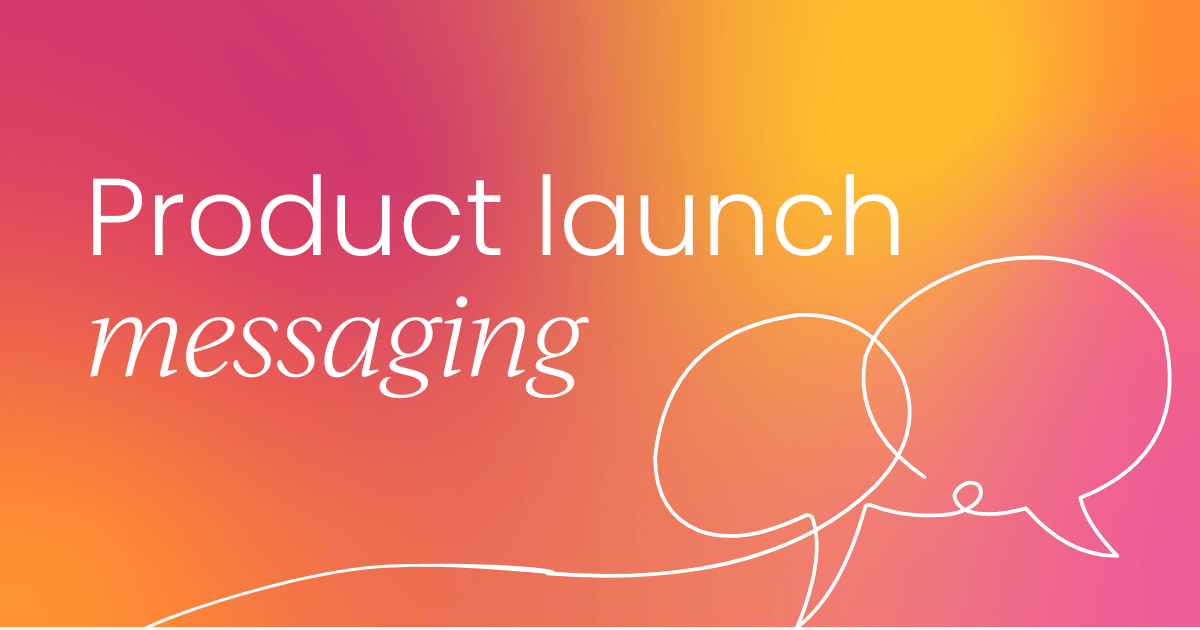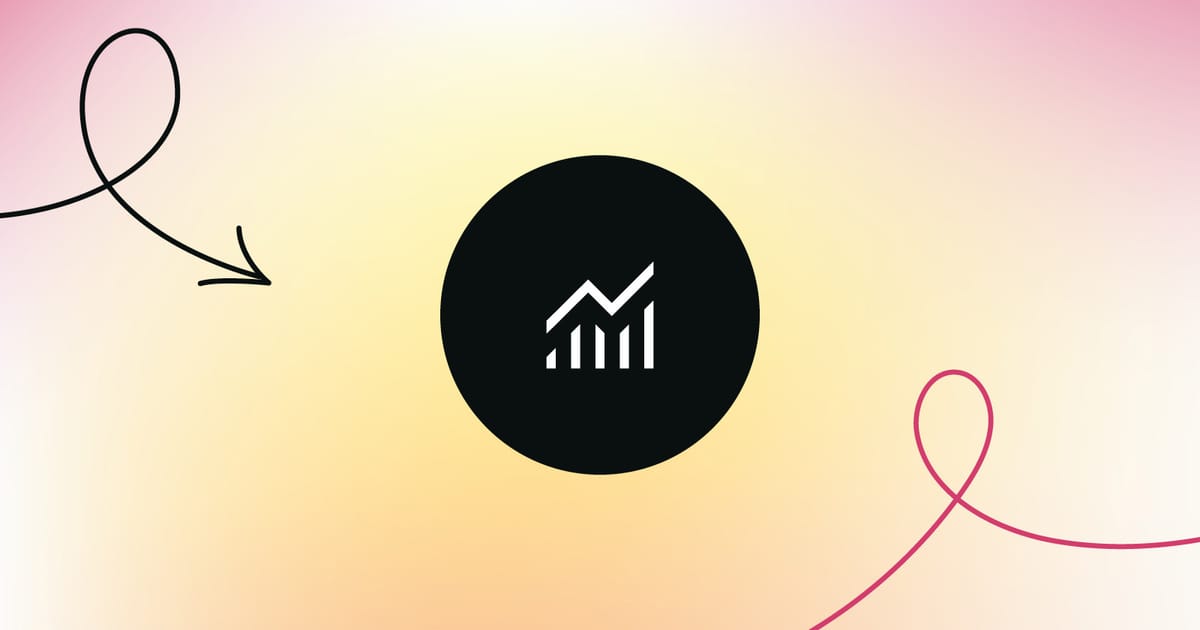This article was adapted from Hope's GTM FM episode, listen to the full conversation here.
The last decade’s been quite a journey.
I’ve been there.
Having once been in a position years ago trying to establish my first Product Marketing job title, I understand the challenges of ‘the PMM pathway’ and helping highlight your transitional skills to both yourself and a prospective employer. Even if you’re an experienced marketer.
Once you do get that first sweet role (and official job title!!) you celebrate your success but then suddenly find yourself feeling like a bit of an imposter as the new overwhelmed PMM seeking guidance. Particularly when you’re a founding product marketer (which I have been 5 times over!) Then, before you know it, you’re in your stride, craving new growth and learning opportunities.
I’ve also moved around. A lot.
My journey has taken me from across many startups and a global tech giant where I’ve had to learn to craft a personal narrative, impress with my CV, and confidently take on interview loops with multiple stakeholders.
I've also had the privilege of working across continents, which wasn’t easy as a first-time mum of twin girls! During my early years of motherhood, I first cut my teeth in the tech scenes of Canada and America before returning to the UK to work with different tech startups.
Most recently, I held a Senior Manager position in Product Marketing at Microsoft.

So, as you can imagine, I’ve really had to adapt throughout my career.
Due to my journey I can relate to the ‘roll your sleeves up’ attitude in a start-up scene with one or two products to then navigating corporate complexities whilst owning a suite of 10 products!
I know that at the end of the day, we all want to do a good job, learn, add value, feel seen, and get fairly compensated. My personal experience has taught me that it’s all achievable and that guidance is invaluable for confidence.
As someone who prioritizes my personal development and supporting the growth of others, I'm excited to share with you the insights I've gained from startup vs corporate.
I'll take you through:
- The stark contrasts and surprising similarities between product marketing in startups and corporate environments,
- The skills that have served me well in both settings,
- The challenges of collaboration I've faced,
- And how my approach to strategy and execution has evolved.
Whether you're just starting out in product marketing or you're considering a change, I hope my experiences and reflections can offer you some practical wisdom and inspiration.
So, let's dive in.
From startup to corporate
I've been in marketing for a decade now, which is crazy to say.
I used to hear people say that and think, "I can't wait till I can say I've been in for ten years."
Product marketing has been a huge part of my journey, with go-to-market naturally coming into play because I'm very people-oriented. I've worked with people across different departments - whether they're engineers, channel and partner specialists, or sales and marketing professionals - and I've learned to work with these different teams (who might only really care about their KPIs and milestones) and get them to align to one objective.
So, I’d say, when it comes to the different types of Product Marketers, I’m definitely a cross-functional collaborator.

Skills across different environments
After a few years working for various tech startups, I had the opportunity to work for a global corporation—not just any global company, but one of the biggest software companies in the world. So, I've really loved seeing the whole scope from start to finish.
In the startup scene, the skills that stood out the most were working with different types of people and wearing many hats.
One week, I could be a copywriter, and the next, a strategist. After that, I might be designing a product's look and feel.
It's about having a real can-do attitude and being comfortable with ambiguity.
You need to be able to take an objective and figure out what needs to be done, how to start, where to start, and how to align – it's almost like project management.
In the corporate world, I experienced a bit of a culture shock.
I went from wearing many hats and constantly executing to taking on more of a specialist role, which I’d describe as the Chief Operating Officer role for my product.
With the privilege of having armies of resources, big budgets, and teams, I suddenly needed to remove myself from being an individual contributor and take a bird's-eye, business-first view. I had to think about monthly revenue, year-over-year comparisons, resource allocation, and reporting back to headquarters.
The skill set that really drew my hiring manager at Microsoft to me was the fact that I'd done it all. I hadn't just learned about business; I'd executed across different role types as a product marketing manager. It was my time to work from a business strategy perspective with that lens.

Collaboration in startups vs. corporate
So, how you collaborate will change depending on whether you’re in a startup or working at a more established company.
In a startup, I had the privilege of walking into an office space and seeing everyone - engineering, sales, product team, and even the founders. That direct, instant visibility and accessibility was huge for my collaboration style. I could easily grab a coffee, know everyone on every team, understand their work styles, and who reported to whom. It was very direct and communal.
Moving into a global corporation, especially working remotely for the first year, was a different story.
Suddenly, I was dependent on building my network without seeing everyone. We're no longer talking about small teams, but hundreds of thousands of people in each organization. I had to take my orchestration skills to the next level, identifying decision-makers in each organization, introducing myself as reliable, and bringing them into what we called a "virtual unit."
In corporate, I understood the value of building your network and influence.
That means building your visibility and credibility and learning to self-promote since you can't see and access everybody like you can in most startups.

Hiring process differences
Naturally, in the same way you’d collaborate with your teams differently, the necessary skills expected from employees will also differ depending on where you work.
So, in the startup world, job descriptions tend to be more characteristic, asking for qualities like a can-do attitude, collaboration skills, and willingness to wear many hats. They're looking for someone adaptable and versatile.
On the other hand, corporate job descriptions are more structured around education level, specialization (by industry or product type), seniority, and years of experience. They're looking for more specialized and experienced candidates, though this is slowly changing in corporations.
Reactive vs. proactive approaches to strategies
I was very reactive early in my career, wanting to be valuable and deliver.
I was receiving requests and then figuring out how to output things. However, I quickly learned that because of limited resources and time, I had to build my character and skill set to prioritize, say no to things, and build business cases for why we're doing certain things and not others.
In corporate, the structure was there like a huge runway in front of me. We're talking 12-month plans, discussing our strategy, why that's our strategy, and how we'll execute it down to tactics across 12 months.
After years in the startup world, it felt like a dream. However, the disadvantage was that my reactive, resourceful, agile side didn't have much room.
If I had a big idea or saw an opportunity in the market, I couldn't just spin up a webinar and start testing that theory like I would at a startup. I would need to build my business case, talk to big teams, submit my case, wait for feedback, and then elevate things up to decision-makers.

Personal growth and challenges
In the startup world, I had to be comfortable leading without authority. I had to step out of my comfort zone to advise founders and senior stakeholders on their products, which were like their babies.
In corporate, my biggest growth area was business acumen. I wasn't an MBA or a businessperson, but I worked with many of those people. I had to quickly become proficient in things like Excel wizardry and know my numbers, which used to be the CEO's or CFO's problem in a startup.
My public speaking skills also improved dramatically. I went from doing webinars in the startup scene to being a keynote speaker for Microsoft, speaking in front of hundreds or thousands of people.
That was phenomenal growth for me.
Looking forward
After a decade in product marketing, I'm now focusing on three areas: continuing my coaching and mentoring of product marketing managers, keeping a foot in the corporate door as an associate coach, and consulting for B2B SaaS startups.
My key takeaway for others is this: You can still navigate and proactively take control of where you want to go next. It's about putting building blocks in place.
Career pivots can be scary, but take what you know and work from there. Wherever you're at now is totally fine. You can design from now, even if you're not fresh out of college or you're approaching your 50s and already a VP.
Give yourself permission to evolve and grow, no matter where you are in your career journey.
I can truly say I feel alignment now between my work experience, career navigation, and my purpose. I'm committed to my clients’ personal and professional growth by offering them a safe space to check-in, chat, feel supported, and grow in their role with the type of tailored partnership and guidance I wish I’d had along the way!





